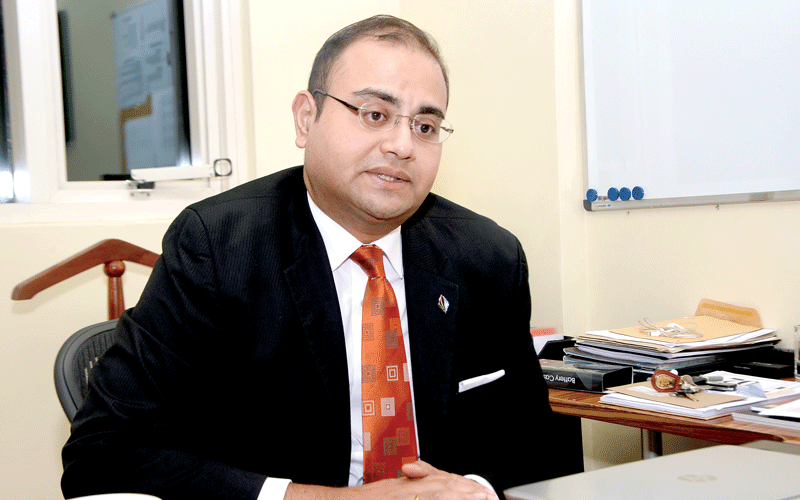How different companies handle employees’ needs
By Sandra Wekesa, October 2, 2019There are some things that are beyond control, such as having a terminal illness or being involved in an accident that may see one bedridden for months. We sample a few organisations on their policies should such a situation arise
Various studies show that 25 to 77 per cent of employees worry about their jobs when they become terminally ill, or when facing a life-changing situation.
On the employer’s part, this may result in persistent reduction in output, increased absenteeism and requests for transfer to less hostile working environments.
So, how best should an employer handle such cases? Josephine Irungu from Prestine Human Resource Engines says every company is required to have a policy on employees’ welfare. Internal policy differs from one organisation to another.
“The policy is required to be non-discriminatory as stipulated in Section 5 of the Employment Act Revised Edition 2012 [2007),” she says.
In cases where an employee is faced with a life-changing situation, the human resource becomes the “Human Face”.
“The HR practitioner should empathise with the employee and offer a quick solution to the affected staff. One of the solutions could be offering relevant support the staff might need.
They can re-adjust the working hours of the affected employee,” she says. According to Irungu, it is not right to terminate an employee going through a painful moment.
In cases where they are retained, the length of stay would depend on the internal policy that the company has.
For instance, if it is an employee who is sick, the employee could utilise the sick leave and as authorised by an approved medical practitioner.
“Should the employee complete the sick leave that is in two phases as guided by the law, the employer should be guided by the medical report submitted by an approved medical practitioner such that the employee is not in capacity to work.
Then the employer can let go the employee on medical grounds,” she says
But if it is in the case of the employee’s spouse, the affected employee can take annual leave to sort out the matter.
Also, the employee can have a mutual agreement with her/his employer to take unpaid leave to sort out the matter.
Mark Wachira, a legal officer, says for termination to be considered lawful, it has to be both substantively and procedurally fair.
In that, the employer needs to have a valid and fair reason for termination. One is also entitled to getting a fair hearing where you can defend your case.
However, one needs to file a complaint to the labour office within three months of the termination date.
You cannot also complain about unfair termination if you are fired during your probation period.
Mediamax Network Limited
Mediamax Limited Human Resource Manager, Maureen Wandera says there are two types of termination of employment.
There is the voluntary where an employee leaves on their own either by retiring or resigning, and involuntary such as layoffs and firing.

In this case, there have to be an official letter showing reasons for termination of service, and they are also served with a notice.
However, in cases where an employee falls ill it is good to at least retain them and give them a flexible working condition.
“It is never your fault to fall ill, that is why a company should retain you for compassionate reasons. Other than that, they should make sure they at least give you jobs that you can attend without straining,” she adds.
Safaricom
According to mobile operator Safaricom Limited, Health, Safety and Wellness manager, Karen Rerimio, when an employee is faced with a life-changing situation, they provide him/her with the necessary support so that they (employees) have the peace of mind to recover quickly.
“Peace of mind is necessary when it comes to quick recovery, therefore, when we support them, then helps them in recovery,” she says.
She highlights that the employees are covered under group life and GPA/WIBA, which provides for compensation depending on the severity of the illness or the level of injury.
“We have also put in place an Employee Assistance Programme, which seeks to create a happy, healthy and productive workforce.
The initiative is in line with our efforts to be 100 per cent ‘human at work’ and seeks to provide support to employees in areas such as coping with a critical disease or recovering from an accident.
I believe it is such initiatives that made Safaricom be recognised as the employer of the year by the Federation of Kenya Employers,” says Rerimio
In cases where an employee takes more time to recover, all the teams involved get into the employee’s shoe and work to resolve any matters urgently and at the same time, provide any psychosocial support/counselling or any support required.
“Medical retirement is only on recommendation of a doctor, and if the condition is as a result of an occupational disease and/or injury, the provisions of the Work Injury Benefits Act are applied,” she adds.
Sankara
The company won the hearts of many following the case of Roselyn Mumo their employee, who was retained even after she suffered a massive stroke that left her paralised.
Since August 2018 until she passed on two months ago, Mumo was still under the company’s payroll.

Sankara Human Resource Manager Carolyne Onyancha, says they have had a few cases where employees have suffered a life-threatening situation, only that Mumo’s story was highlighted in the media.
Though the company, couldn’t shed much light on their policy, the Group General Manager Krishna Unni says, they have employee’s interest at heart and when any faces a difficult situation, they come up with ways to manage it.
“We are not quick in passing judgement on something that is not an employees’ fault,” he says.
Given that the hotel industry can be quite hazardous, the company has accident cover for its employees.
“We have over 240 employees in the industry and they are all treated equally, that is what brings in unity and enhances their skills,” he adds.
